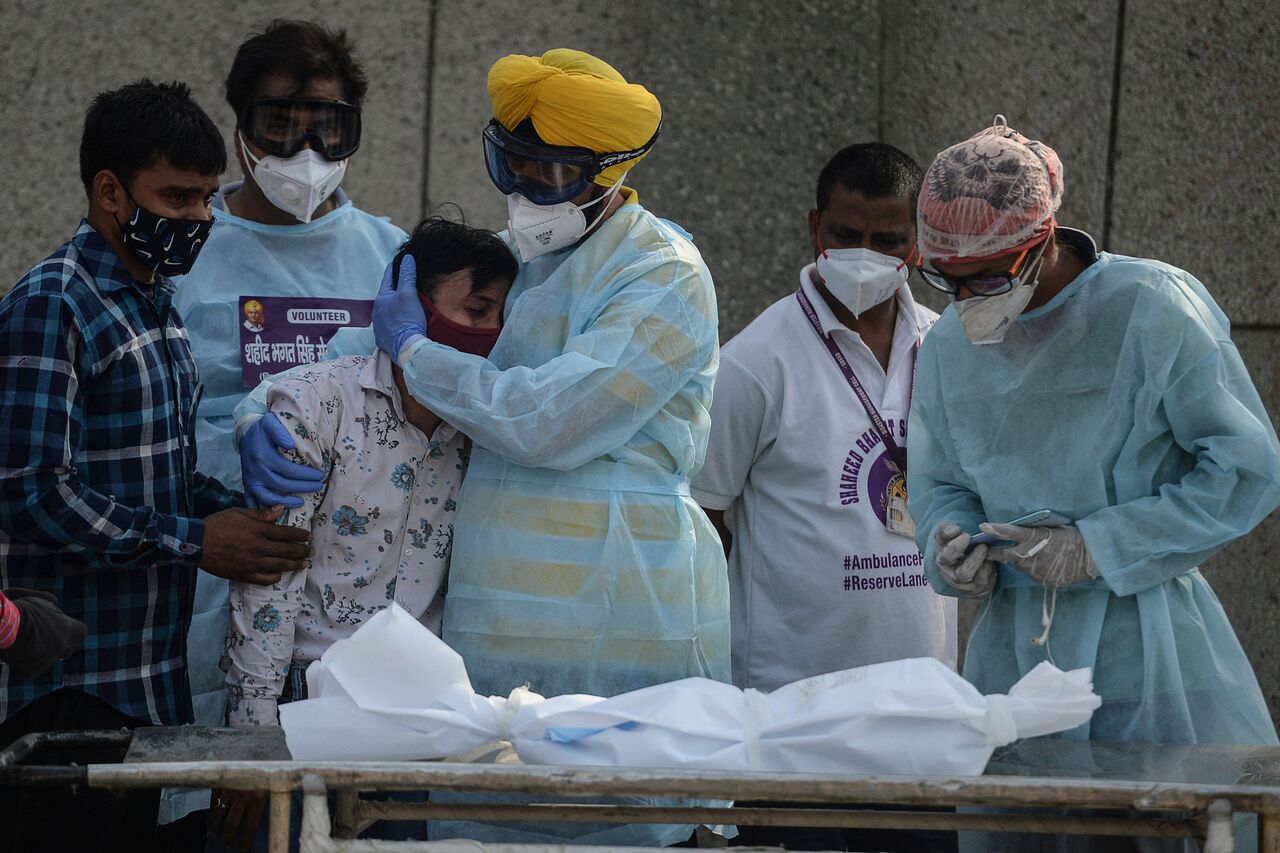India pledges to distribute more vaccines as states extend lockdowns
Sign up now: Get ST's newsletters delivered to your inbox

India's tally of infections stands at 24.68 million.
PHOTO: AFP
Follow topic:
BENGALURU (REUTERS) - Some Indian states said on Sunday (May 17) they would extend Covid-19 lockdowns to help contain the pandemic, which has killed more than 270,000 people in the country, as the federal government pledged to bolster vaccine supplies.
The number of deaths in the past 24 hours rose over 4,000 for the fourth time in a week, with Sunday's 311,170 new infections representing the lowest single-day rise in more than three weeks.
Federal health officials warned against interpreting a "plateauing" in the rise as a sign for complacency, however, and urged states to add intensive care units and strengthen their medical workforce.
The northern states of Delhi and Haryana extended lockdowns, slated to end on Monday, by a week.
Delhi's Chief Minister Arvind Kejriwal said the rate of positive cases compared with overall tests carried out had come down to 10 per cent from as high as 30 per cent earlier this month.
"The gains we have made over the past week, we don't want to lose them. So we are going to extend the lockdown for another week," Kejriwal told reporters.
The southern state of Kerala, which has previously announced a lockdown extension, also introduced stricter restrictions in some districts on Saturday. It warned that people not wearing masks where required or violating quarantine protocols faced being arrested, with drones used to help identify violators.
The Indian government said it would send an additional 5.1 million doses of Covid-19 vaccines to states over the next three days.
Even though India is the world's largest vaccine-producing nation, only 141.6 million people have received at least one vaccine dose, or roughly 10 per cent of its population of 1.35 billion, according to health ministry data. The country has fully vaccinated just over 40.4 million people, or 2.9 per cent of its population.
India's supply of vaccine doses should rise to 516 million doses by July, and more than 2 billion between August to December, boosted by domestic production and imports, Health Minister Harsh Vardhan said in a statement.
Vaccines were resulting in milder infections and preventing loss of life, states told Vardhan on Saturday, according to the statement.
But the average vaccination rate over seven days fell to 1.7 million, from 1.8 million a week ago, after Maharashtra, the richest state, and Karnataka in the south put vaccinations on hold for adults younger than 45.
India could protect itself from future waves of the pandemic by vaccinating 510 million people, or more than 40 per cent of its population, over the next few months, surgeon Devi Shetty told news channel India Today in an interview.
"There is no other solution and that is the cheapest solution," he added. "It is the best solution we have to save millions of lives."
Prime Minister Narendra Modi opened vaccinations for all adults from May 1, doubling the number of those eligible to an estimated 800 million, though domestic production will stay largely flat, at about 80 million doses a month, until July.
Authorities in Modi's western home state of Gujarat said they would halt vaccinations on Monday and Tuesday to take protective measures against a cyclone expected to hit its coast next week.
A second batch of the Sputnik V vaccine imported from Russia arrived in the southern technology hub of Hyderabad on Sunday.
India's massive second wave of infections began in February, putting hospitals and medical workers under unprecedented pressure.
Total infections have risen by more than 2 million this week and deaths by nearly 28,000. Deaths rose by 4,077 on Sunday.
On Saturday, federal health officials said the proportion of positive tests had dipped to 19.8 per cent this week from 21.9 per cent last week, sparking hopes that daily infections had begun to stabilise.
But surges have been seen in states such as Tamil Nadu in the south and rural areas. The government issued new guidelines on Sunday to curb the spread of the virus in India's vast countryside, urging more surveillance of flu-like symptoms.
Bodies of Covid-19 victims were found to have been dumped in some rivers, the government of the most populous state of Uttar Pradesh said in a letter seen by Reuters, in the first official acknowledgement of the alarming practice.

